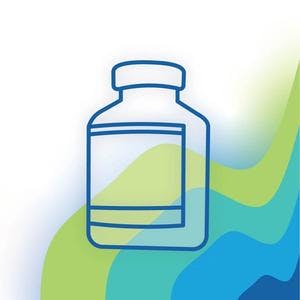Corona viruses
Corona viruses are a family of viruses that may cause illness ranging from a common cold to more severe diseases such as severe acute respiratory syndrome (SARS). The newly discovered coronavirus, Severe Acute Respiratory Syndrome Coronavirus 2 (SARS-CoV-2) was confirmed to cause the infectious disease, Coronavirus Disease 2019 or COVID-19.
COVID-19 was initially identified in seafood, wildlife, and poultry markets in China, and has since then spread to more than 100 countries, including South Africa. By March 2020, the World Health Organisation advised that Covid-19 had the characteristics of a pandemic. A pandemic refers to a worldwide outbreak and spread of a disease.
How does COVID-19 spread between people
The virus spreads in several different ways:
- The virus spreads from an infected person’s mouth or nose in small liquid particles when they cough, speak, sing, or breathe. These liquid particles range from larger droplets to smaller aerosols.
- The virus spreads mainly between people who are in close contact with each other, within 1 metre. A person becomes infected when they encounter droplets containing the virus into the eyes, nose, or mouth.
- In poorly ventilated or crowded settings, the aerosols remain suspended in the air and can travel longer than 1 meter.
- People can also be infected by touching surfaces which have been infected with the virus when they touch their nose, eyes, or mouth.
When do infected people transmit the virus
Studies show that infected people approximately 2 days before they develop symptoms and early in their illness. People with severe disease can be infectious for longer.
How do infected people present
When people are infected, they can either be symptomatic, asymptomatic, or pre-symptomatic. Both asymptomatic and pre-symptomatic refer to people who do not have symptoms. People who are asymptomatic are infected with the virus but do not develop any symptoms. Pre-symptomatic refers to people who have not yet developed symptoms but develop symptoms later.
People who are symptomatic may present with the following symptoms ranging from mild to severe disease.
Most common symptoms
- Fever
- Dry cough
- Tiredness
Less common
- Muscle aches
- Sore throat
- Diarrhoea
- Headache
- Loss of smell or taste
- Skin rash
Severe symptoms
- Difficulty breathing or a shortness of breath
- Chest pain or discomfort
- Loss of speech or movement
How can I reduce my risk of getting COVID-19
- By washing your hands regularly with soap and water
- Cleaning hands with an alcohol-based hand rub
- Avoid touching your face
- Covering your mouth and nose with a well-fitting mask
- Staying home if you feel unwell
- Keeping a distance from the next person in public spaces
- Avoiding unnecessary travel and large groups of people
Medical treatment
Currently, treatment is supportive care for patients who are severely ill or are at risk of severe and critical illness. This includes:
- Oxygen for severely ill patients and more advanced respiratory support such as ventilation for critically ill patients.
- Dexamethasone is a corticosteroid that is used to reduce the time on a ventilatory
Vaccines
Vaccines are a safe and effective way to prevent moderate to severe COVID-19 disease upon exposure to the virus. This is by using your body’s natural defence to build resistance to specific infections, making your immune system strong. To learn more about how vaccines work, read our pamphlet on vaccines here.
The Johnson and Johnson, Pfizer, Sinovac and AstraZeneca vaccines have been approved by the South African Health Products Regulatory Authority (SAHPRA). All these vaccines are safe to use and effective in reducing the risk of severe illness.
The South African government Vaccine Information Portal contains the updates on who is eligible for the current rollout and how to register for the vaccine.
To register, you need:
- Access to the internet
- ID number of Passport number
- Information about your employment (primary employer and location of work)
Register using the link: https://bookings.v4hcw.co.za/vax/
You can also register with this information at a vaccination site should you not have access to the internet.
Understanding waves and variant
Many viruses, including the SARS-CoV-2 virus, evolve or mutate by changing its structure over time in a way that makes them more transmissible and better at evading the body’s immune system reaction to the virus. This results in severe disease. These mutations result in variants of the SARS-CoV-2 virus resulting in sharp increases in cases due to the new form the virus has taken.
An example of the variant is the predominant variant in South Africa which accounted for most of the cases during the second wave of the pandemic, the Beta variant. The Beta variant has over 20 changes in its structure compared to the original SARS-CoV-2 virus. One of these proteins is the spike protein which helps the virus to enter your body’s cells. In the Beta variant, the spike protein is mutated to allow the virus to better attach itself to human cells.
Variants can reduce the efficacy of vaccines, but do not render the vaccines ineffective.
Variants can reduce the efficacy of vaccines, but do not render the vaccines ineffective.

